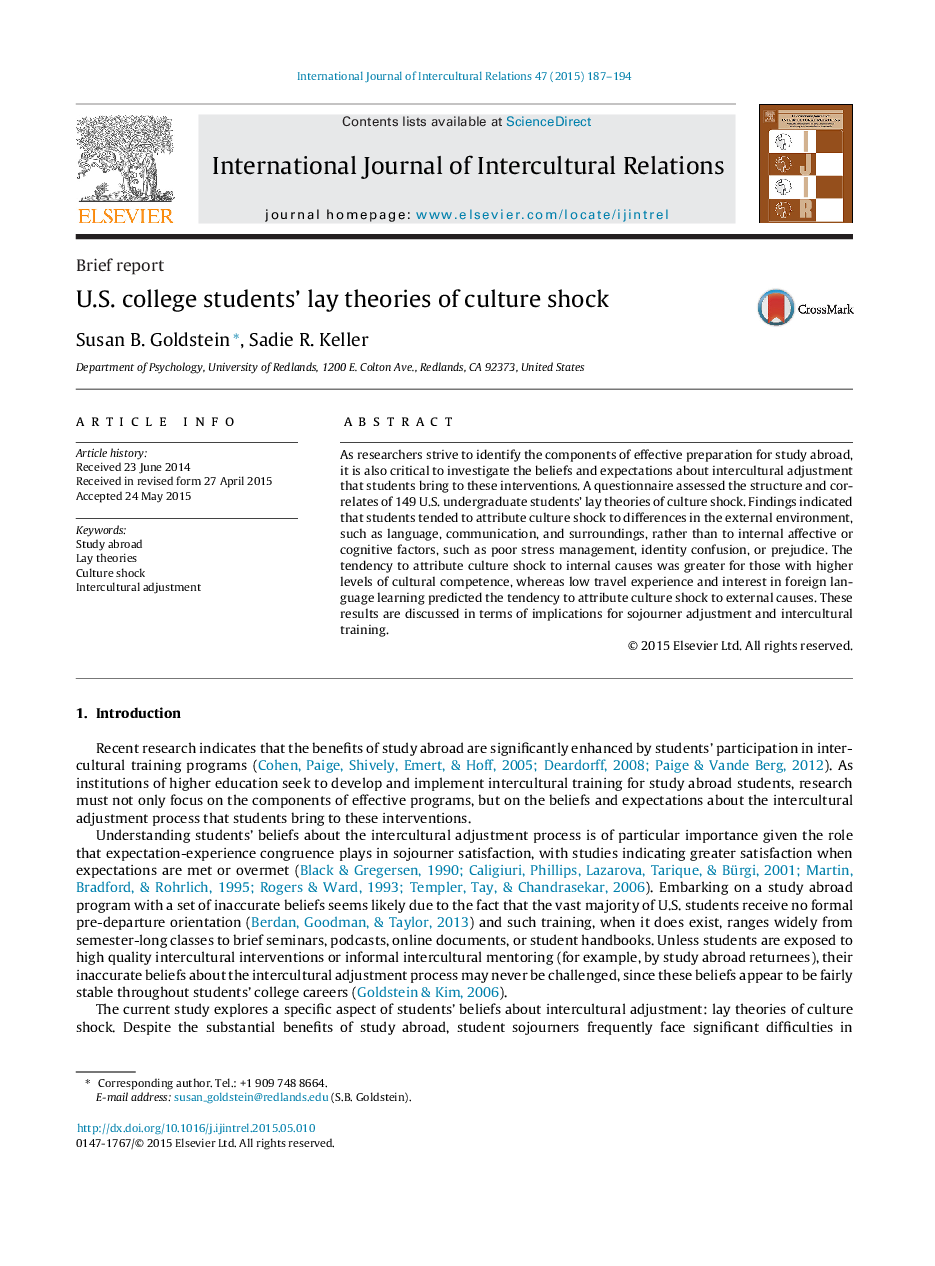| Article ID | Journal | Published Year | Pages | File Type |
|---|---|---|---|---|
| 947018 | International Journal of Intercultural Relations | 2015 | 8 Pages |
As researchers strive to identify the components of effective preparation for study abroad, it is also critical to investigate the beliefs and expectations about intercultural adjustment that students bring to these interventions. A questionnaire assessed the structure and correlates of 149 U.S. undergraduate students’ lay theories of culture shock. Findings indicated that students tended to attribute culture shock to differences in the external environment, such as language, communication, and surroundings, rather than to internal affective or cognitive factors, such as poor stress management, identity confusion, or prejudice. The tendency to attribute culture shock to internal causes was greater for those with higher levels of cultural competence, whereas low travel experience and interest in foreign language learning predicted the tendency to attribute culture shock to external causes. These results are discussed in terms of implications for sojourner adjustment and intercultural training.
